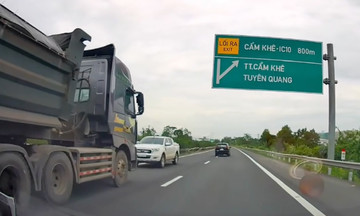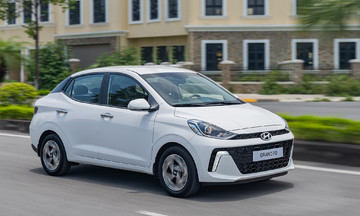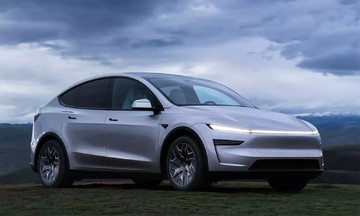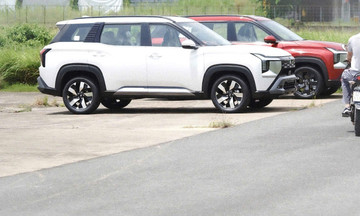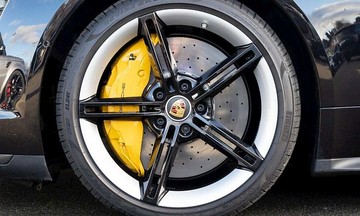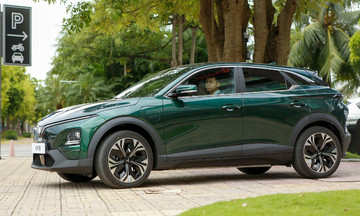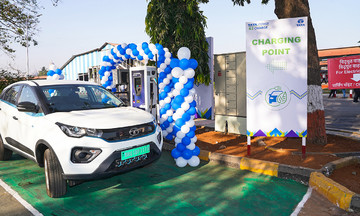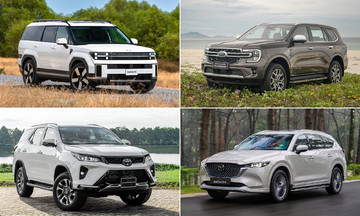Experts anticipate this project will propel Indonesia toward its goal of becoming a regional technology hub. However, some domestic experts, such as Professor Evvy Kartini, founder of the Indonesian National Battery Research Institute (NBRI), believe this progress is somewhat delayed.
"A little late, but better late than never. IBC should have done this a few years ago," Indonesian news site Kumparan quoted the professor as saying.
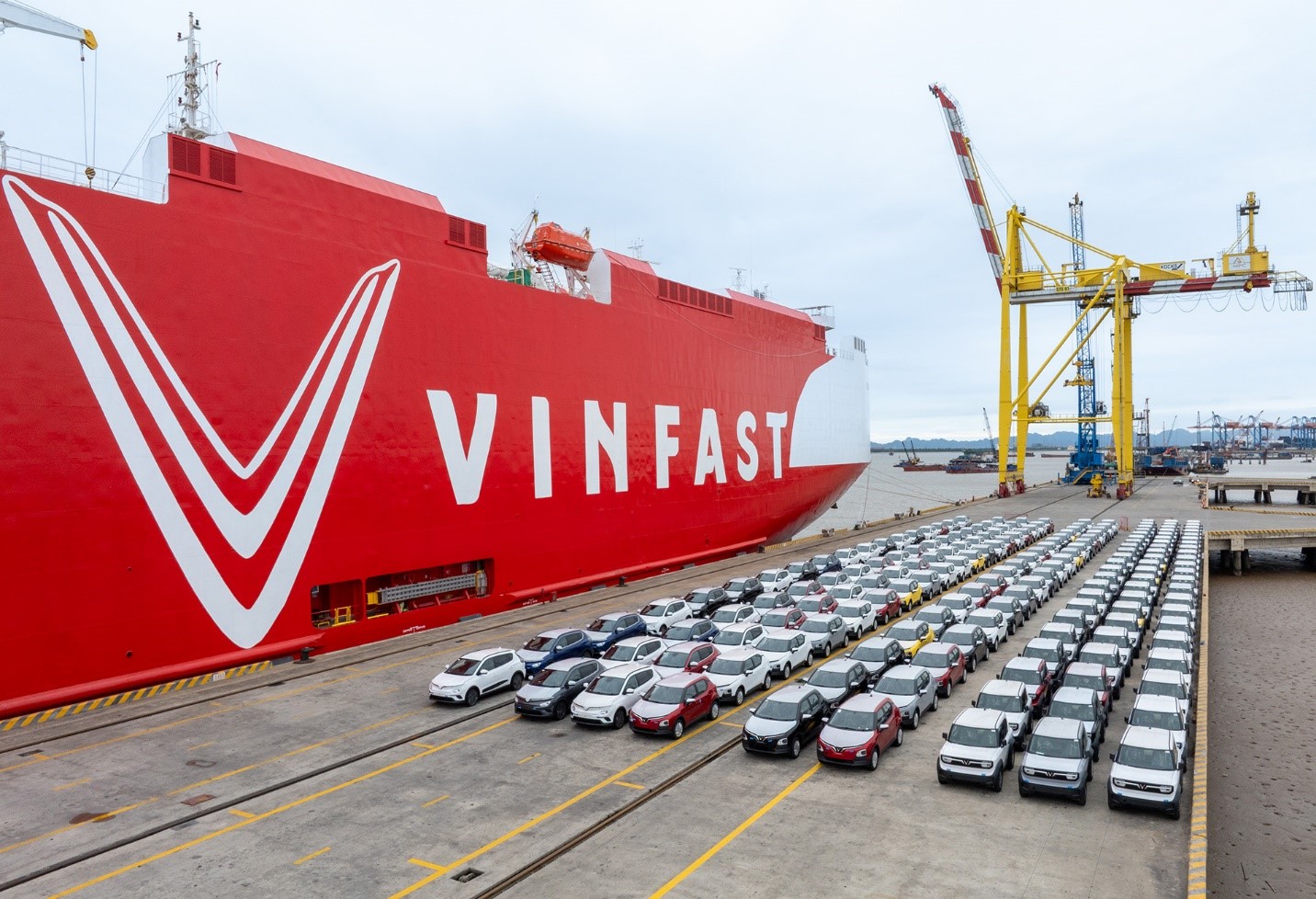 |
VinFast electric vehicles exported to Indonesia. Photo: VinFast |
VinFast electric vehicles exported to Indonesia. Photo: VinFast
Professor Kartini highlighted Vietnam's progress in the EV sector. Despite having smaller nickel reserves than Indonesia, Vietnam has achieved a higher degree of localization and self-sufficiency in battery and vehicle production. She attributed Vietnam's success to a "simpler and easier process" and suggested that Indonesia could replicate this ecosystem within 3 years by learning from Vietnam's example.
In a March article on CNN Indonesia, Jayan Sentanuhady, a mechanical engineering lecturer at Gadjah Mada University, stated that Vietnam has become a viable model for developing nations seeking to establish a domestic electric vehicle industry. "There will be challenges, but Vietnam has demonstrated feasibility with its own EV brand, VinFast," he said.
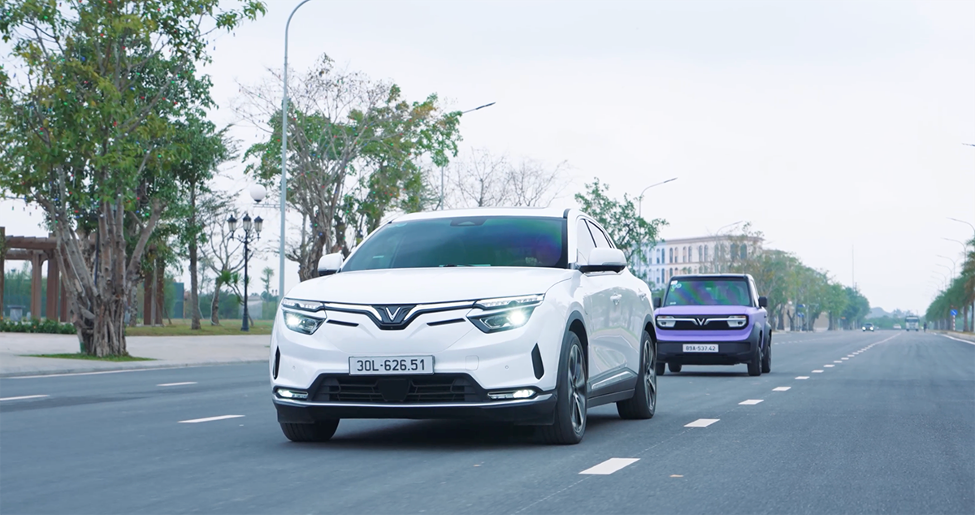 |
Two VinFast electric vehicle models in Vietnam. Photo: Quang Anh |
Two VinFast electric vehicle models in Vietnam. Photo: Quang Anh
Kumparan cited VinFast as a testament to successfully building a local EV ecosystem. According to VinFast's data, the company has achieved over 60% localization, aiming for 80% by 2026. Importantly, the Vietnamese automaker has expanded globally, including a presence in Indonesia. After over a year in the Indonesian market, VinFast is replicating its comprehensive ecosystem model, a key factor in its success in Vietnam.
In Indonesia, VinFast offers a range of models, including the VF 3, VF 5, VF 6, and VF e34. Its electric vehicle factory in Subang is nearing completion and is expected to be operational this year, boosting localization and contributing to the local EV industry. VinFast's ecosystem also encompasses showrooms, service centers, and over 1,000 operational V-Green charging stations, with a target of 50,000 stations this year.
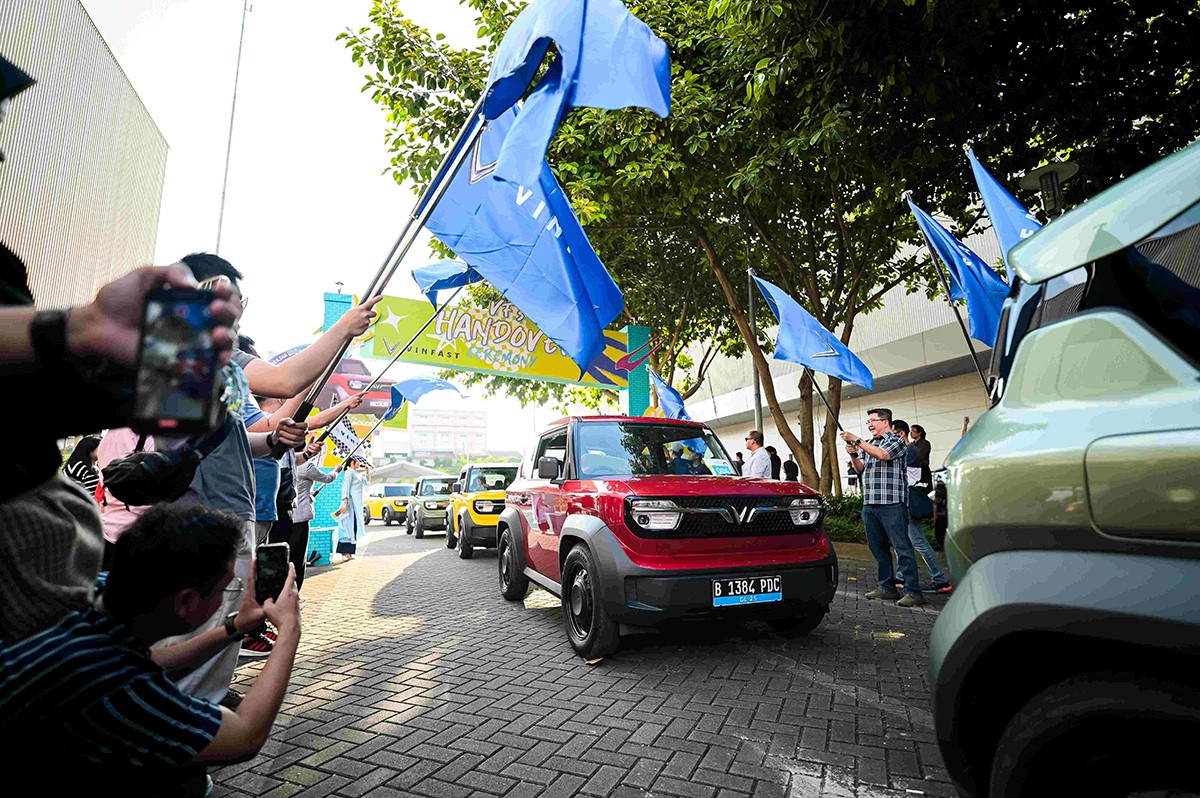 |
The VinFast VF 3 electric vehicle welcomed by Indonesians. Photo: VinFast |
The VinFast VF 3 electric vehicle welcomed by Indonesians. Photo: VinFast
VinFast also offers various incentives in Indonesia, such as 0% interest installment plans, a buy-back guarantee of up to 90% of the vehicle's value, and free charging until 2028. VinFast EVs are becoming integrated into daily life in Jakarta through the Green SM (local name for Xanh SM) all-electric taxi service. According to CNN Indonesia, VinFast's achievements, including becoming the best-selling automaker in Vietnam after 8 years, are inspiring Indonesia.
At the opening of the Gaikindo Indonesia International Auto Show (GIIAS) late last year, Indonesian Minister of Industry Agus Gumiwang revealed that the president had tasked his cabinet with "domestic car production." However, developing a national car industry is complex, requiring government support through regulations, incentives, and multi-stakeholder collaboration. "Another crucial factor is fostering a preference for domestic products," Jayan stated on CNN Indonesia.
Quang Anh



